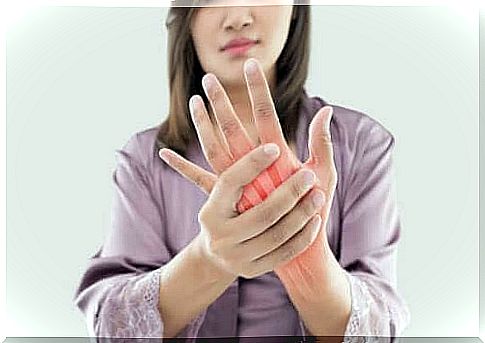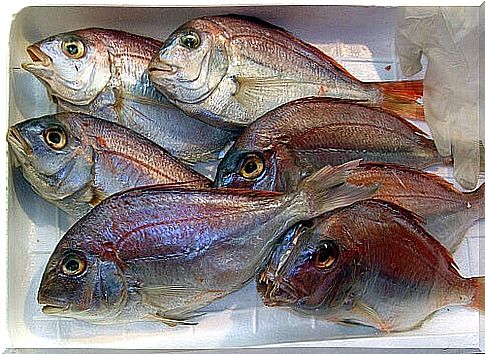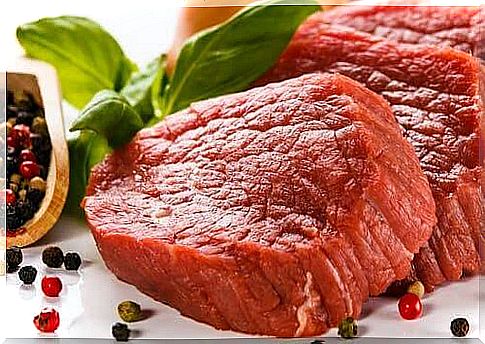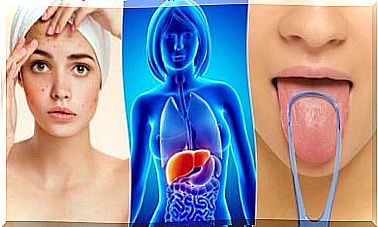8 Foods That Can Cause Arthritis

Gout is a painful inflammation of the joints caused by the accumulation of uric acid. It can affect the feet, knees and ankles, but most of all the big toe. Episodes of arthritis can last for several months, and those most at risk are adult men and overweight. Here are the 8 foods that can cause arthritis.
Seafood can cause arthritis
What some call ‘seafood’ can be very harmful to the health of those suffering from arthritis. This is because seafood contains high levels of a substance called “purine”, which your body converts to uric acid.
If you do not suffer from arthritis, you can allow yourself to eat certain types of seafood, but do not go too far. Remember that doctors do not recommend consuming more than 4-6 servings a week.
Herring

Herring, unlike the types of fish that you are allowed to eat in small amounts, is strictly forbidden for patients with arthritis. Therefore, it should be completely removed from your diet. Also avoid anchovies and tuna.
At the other end of the spectrum are crab, lobster and shrimp, which are relatively safe. In other words, do not overdo it, but also do not completely remove seafood and fish from your diet.
Beer can cause arthritis

Experts have proven that beer doubles the risk of suffering from arthritis in those prone to this disease. This is basically true for two reasons: It increases the level of uric acid in the body and it prevents your body from easily flushing the purine out of your system.
Wine is a better option, but not in excessive quantities. A glass of wine for dinner would be an acceptable amount, although many doctors strictly ban alcohol altogether if you have arthritis.
Red meat

Red meat contains a large amount of purine in addition to other chemicals that can increase your cholesterol levels and cause weight gain. It is better to eat white meat (chicken or fish) and occasionally a little red meat. In added to n ome experts advise against pork and beef completely, but little beef per week is acceptable.
Turkey

Along with goose, turkey is a purine-rich food, so they are best avoided if you have arthritis. Those exposed to this disease should reduce their intake of poultry and wildlife to a minimum. The “safer” options are chicken and duck, with thighs being preferred to breasts.
Sweetened beverages

Avoid beverages that contain corn syrup or fructose, soft drinks and bottled juices. These drinks contain many sweeteners that cause increased production of uric acid. The daily consumption of beverages containing sugar or fructose increases the overall risk of suffering from arthritis for women.
Asparagus

In this group you will also find purine-rich foods such as cauliflower, spinach and mushrooms. If you like all of these foods, you can reduce your consumption instead of cutting them completely out of your diet. Remember also that v own Aryan diets promotes the excretion of purines.
Liver can cause arthritis

Liver is in the category of “strictly forbidden” along with kidneys and sweet bread. In other words, avoid eating offal from a cow, a lamb, or any other similar type of animal. These foods are not good for your health in any way, let alone for those suffering from arthritis.
What can you eat when dealing with arthritis?
There are many foods that help treat arthritis and here they are:
- Low fat dairy products.
- Complex carbohydrates.
- Coffee.
- Fruit.
- Citrus.
Drink 12-16 glasses of fluids a day, which may include: Water, tea, natural juices and coffee or any other liquid (with the exception of sugary soft drinks and beer) that promotes blood circulation and removal of waste through the urine.
Remember that arthritis can be diagnosed through your symptoms or by detecting increased levels of uric acid in the blood. If the test is not final, it is necessary to have your synovial fluid analyzed. X-rays may be beneficial in the detection of chronic arthritis, but not in minor or acute cases.









